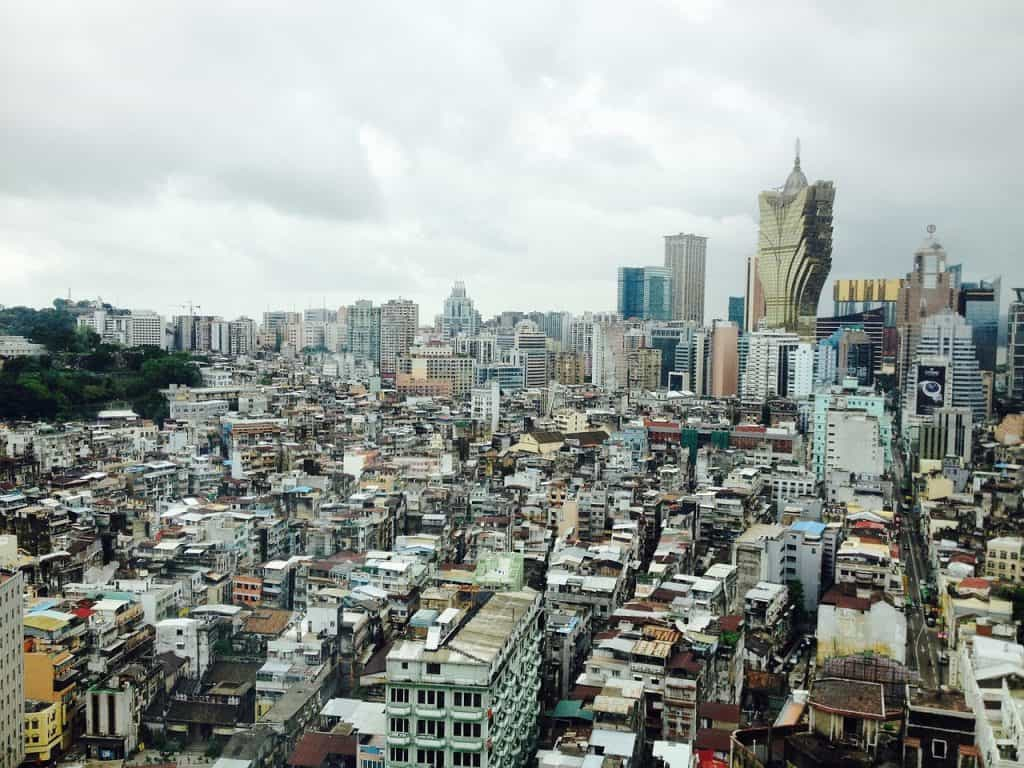Macau’s Resilient Tourism Boom
During the recent Golden Week holiday, Macau witnessed a significant spike in tourism. Nearly a million tourists flooded its streets, marking 84% of the 2019 daily average for the same period. A series of captivating events beckoned visitors to Macau’s iconic casinos, with a poolside party starring NBA sensation Shaquille O’Neal as a standout. A whopping 76% of these visitors hailed from mainland China.

The city of Macau is showing strong signs of a full pre-Covid tourism recovery, following the loosening restriction in China and pent-up demand across Asia being allowed to engage once more.
?doviliux/Pixabay
This influx of tourists subsequently led to a sharp rise in gaming revenue, especially from the general public. With China taking a harder line on high-stakes gamblers, this mass-market segment is now a central pillar for Macau’s casino sector. Esteemed financial powerhouse, JPMorgan Chase & Co., project that mass gaming earnings might even eclipse 2019’s figures by a robust 110% next year. Such promising numbers hint at the full revival of casino profits by mid-2024.
The allure of Macau’s casinos is undeniable. Beyond the games, these establishments offer world-class entertainment, gourmet dining, and luxury accommodations. The recent tourist figures underline the success of Macau’s strategy to expand its appeal beyond just gambling. The focus on a more holistic entertainment experience is clear.
China’s Rising Domestic Tourism
Macau’s tourism surge is a chapter in China’s broader narrative of booming domestic tourism. The country is riding a wave termed ‘revenge travel’, which encapsulates the pent-up travel desires from the pandemic lockdowns. Furthermore, there’s a discernible pivot in consumer spending, gravitating more towards experiences, possibly stemming from the ongoing economic slowdown. Macau is strategically positioning itself in this landscape, aspiring to transform from a gambler’s paradise to an entertainment haven, akin to the famed Las Vegas Strip.
However, it’s worth noting that the tourism uptick didn’t uniformly benefit all sectors in Macau. Certain retail segments faced stagnant sales, hinting at lingering economic apprehensions that might deter consumer spending. On a broader scale, while domestic trips across China are predicted to grow by 15% this Golden Week (compared to 2019), actual spending might only see a modest 5% uptick.
The ‘revenge travel’ trend, although promising, poses challenges. As destinations like Macau become more popular, they must ensure they cater to the changing tastes of tourists while maintaining sustainable tourism practices. The balance between attracting visitors and offering quality experiences becomes crucial.
A Wider Perspective is Needed
Understanding Macau’s situation requires a wider lens, comparing its trajectory with other global hotspots. Many of these locales, much like Macau, rely substantially on casino and entertainment earnings. An insightful dive into the repercussions of China’s restrictions on affluent gamblers and its bearing on Macau’s change into an entertainment beacon can be good to help understand the dynamics.
Furthermore, a global perspective on the shift towards experiential spending offers valuable insights. It sketches a comprehensive picture of the global tourism and entertainment landscape, adjusting to a post-pandemic world. The blend of health considerations, economic factors, and evolving consumer preferences shapes this new global travel paradigm.
The cities involved in the gambling industry must consider adaptability as a key attribute in this dynamic landscape. As travel bubbles form and consumer preferences evolve, destinations like Macau will need to stay agile, anticipating shifts and responding promptly to ensure they remain top choices for global travelers.
 Online Casinos UK
Online Casinos UK



